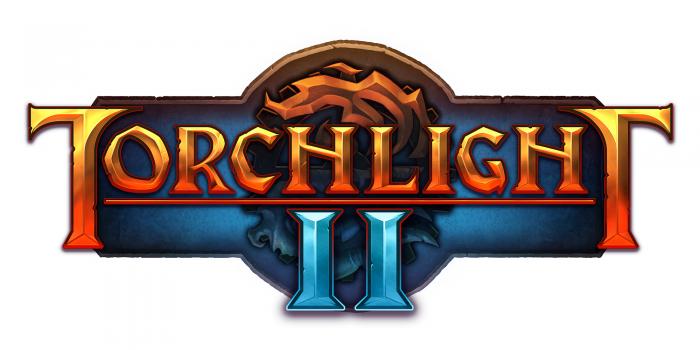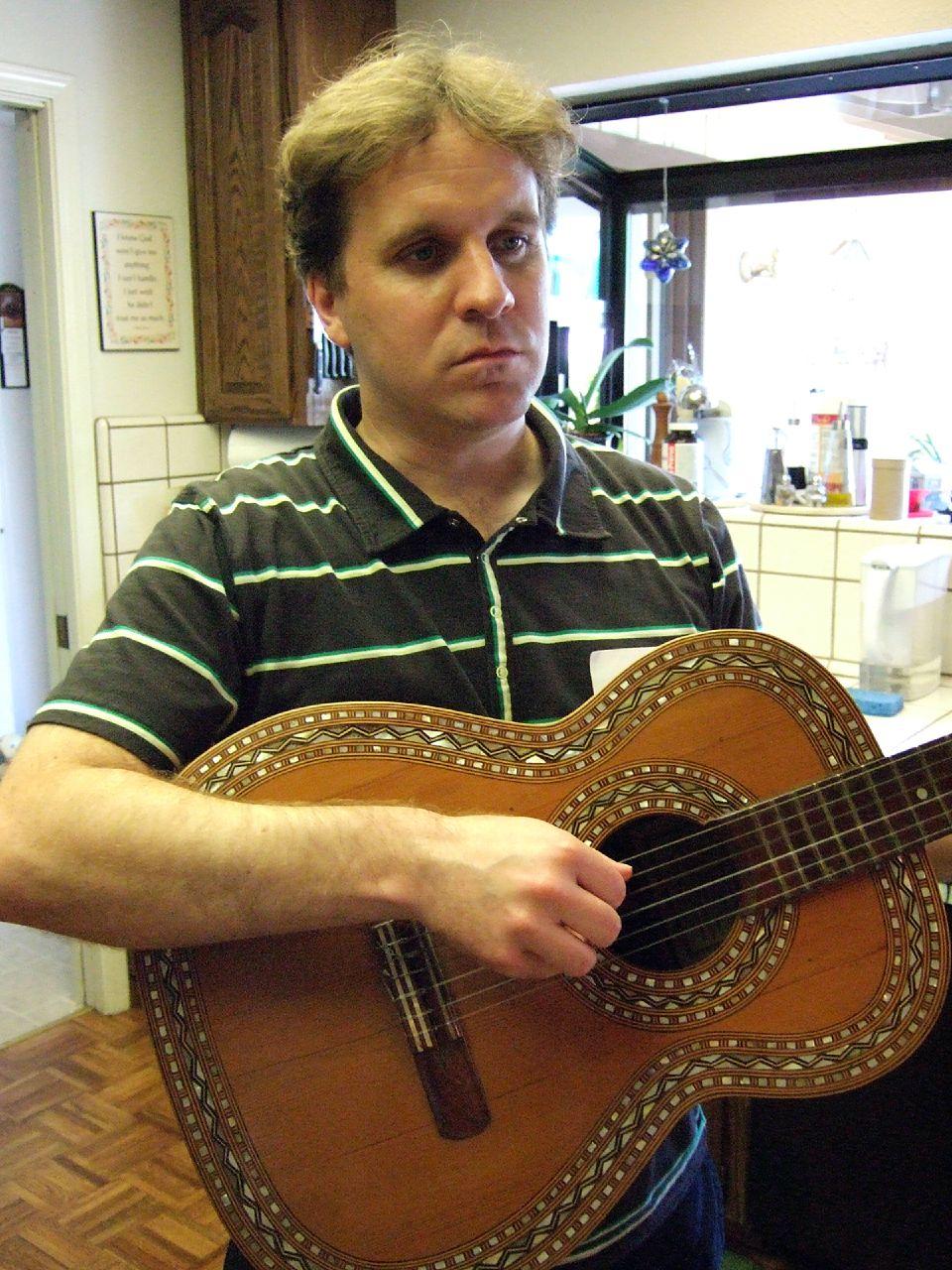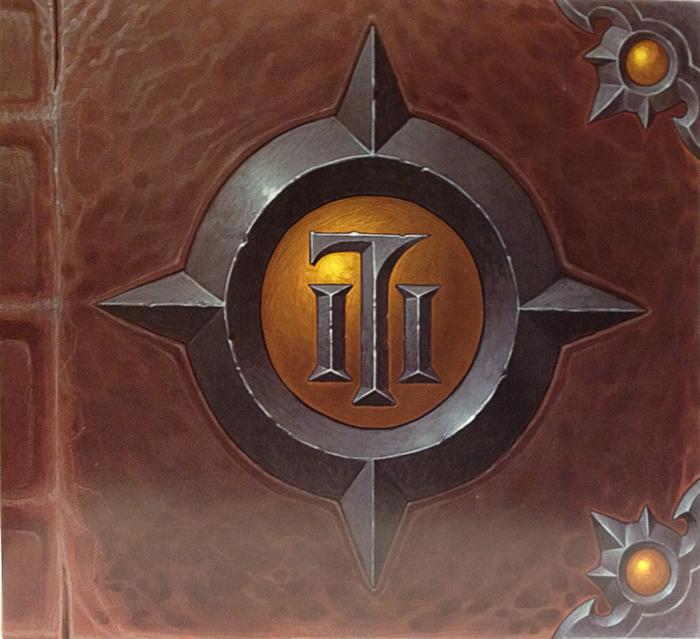Matt Uelmen Interview: A New Sense of Scale (October 2012)
Interview Credits
Interview Subject: Matt Uelmen
Interviewer: Michael Naumenko
Editor: Michael Naumenko, Simon Elchlepp
Coordination: Michael Naumenko
Interview Content

Michael: Hi Matt! Two years have passed since we last talked to you about Torchlight. Torchlight II has now been released, as well as its soundtrack, and that's a good reason to meet again.
I think many people have already listened to your Torchlight II soundtrack, thinking “Wow, this music SHOULD be in Diablo III”. Torchlight II seems to draw a lot of inspiration from Diablo II, as it re-uses some elements like those echoing snares for example. What was the inspiration for this?
Matt Uelmen: Even though the genres are the same, and, of course, most composers, myself included, are going to often use similar ideas for works in the same genre, I think there are enough differences between the two titles such that nothing in Torchlight II should be thought of as a response to anything in the Diablo series. There are production techniques (like echoed percussion) which I just happen to like, and would probably be heard, at least a little, in any soundtrack I might do regardless of genre.
Michael: Torchlight II is much bigger than its predecessor. What was the difference in terms of music and sound design between these projects?
Matt Uelmen: The main difference is in the scope of the project, the variety of the environments, and the alternation between exterior "overworlds" and interior "dungeons". All of these things needed to be reflected in and supported by the music. Sound design just needed to cover much, much more material. Aside from four player characters of both genders and over a hundred unique monsters, there are dozens and dozens of unique sequences that required specific sounds for specific animations.
Michael: What were your main inspirations and references for the soundtrack?
Matt Uelmen: Good question, and one I haven't heard much in this interview cycle! I was really trying to capture some of the spirit of classical music from the depression (the 1930s) - Bartok, Barber, Messiaen. Some great orchestration with a limited palette was done in that time, and really connected with the historical circumstances of that era. I tried to focus a bit on that with my choice to exclude the winds in my live sessions.
Michael: You have previously worked with the Slovak National Symphony Orchestra in Bratislava on Diablo II: Lord of Destruction and World of Warcraft: Burning Crusade. This time, you came to record the music for Torchlight II, which introduces live orchestral sounds to the Torchlight franchise. What instruments did you record? How much time did it take and how much material did you record?
Matt Uelmen: I strictly recorded Strings, Percussion, and Keyboard this time (with harp and piano falling somewhere in between the first two groups, I suppose). I really had two goals, one, of course, to record music which could be made into soundtrack music directly - and most of the 'town' music and opening theme is the product of straight live takes - but I also wanted to give myself a mini-library of chords to use in tracks that would build on that material. The very slow, elegiac material which ended up being the main "Enclave" town had a similar approach to material that ended up being in the latter group. We did it all in a 24-hour period, and because the material was very streamlined and straightforward, we actually managed to record multiple hours.
Michael: What do you think about Bratislava? Did any funny things happen to you while you were there? And by the way, which European country do you like to visit?
Matt Uelmen: Bratislava is a fascinating town, and the changes I've witnessed over the past dozen years there are really breathtaking. On one hand, it is great to see the area near the Danube blossom into such a well-manicured area, packed with tourists (which it really wasn't when I was first there a dozen years ago). It's great that Slovaks have a real "high street" district in their country. On the other hand, it is hard not to feel like it is a little less distinctive than it was a dozen years ago, and a little more like any other larger European town. I'm drawn to Central Europe, my maternal grandmother was born in what was Czechoslovakia and I've always felt a connection to the region and a sympathy with the culture there.
Michael: What was the orchestral recording process like for the tracks where the live sounds are going to be mixed with electronic elements? Do you write a demo with orchestral samples and all the electronic parts finished first and then just mute the orchestral samples during the recording session, or there is some other method?
Matt Uelmen: No, I didn't do any "demos", I never have with my orchestral work. This was actually the first time where I used any kind of midi reference at all on orchestral writing! The more I do this kind of work, the more I realize that I just need to make the writing and things like the tempi and expression notation very clear and simple, and sit back and let Kirk (my conductor) and the engineers do their job, which they do very well.
Michael: You're known for using electronic sounds and instruments in scores where these elements might seem out-of-place at first glance, but in the end add nuances and turn your scores into outstanding and original works. In Diablo and Diablo 2, there were electric guitars sounding like children's cries in the dungeons, jazzy Rhodes sounds in the desert and Korg synth in the jungle... Torchlight II follows this tradition - what we hear in the second half of "Sphinx" resembles some street sounds from Blade Runner, while in other tracks there even seem to be references to the score for Kenneth Anger's Lucifer Rising. What was the process of coming up with all these original ideas - do you just throw everything against the wall to see what sticks? Did you have any interesting sources of inspiration beside the game's design material?
Matt Uelmen: Those are great references! I love the Blade Runner soundtrack, and I believe Lucifer Rising was actually Jimmy Page's first soundtrack project, done at the peak of his powers around the time I was born. "Throwing everything against the wall" is a good description. Sometimes, a heavily "dub"/effected approach works wonderfully, sometimes, it just makes things messy and unfocused. You really never know until you play a mix back. Sometimes, you want a finger cymbal, sometimes, you want a hundred piece orchestra blaring away, sometimes, you want a heavily processed mixture of both.
Michael: Torchlight II is receiving great reviews and the game really deserves it. If development on Torchlight III started, what kind of things would you do with the soundtrack - make it more multilayered and deeper, or try to do it in a completely new way?
Matt Uelmen: Well, we may see an expansion. I honestly have no idea - our programmers are going to be very busy with the Mac port for the near future, and it is hard for the team to really commit to anything until they're totally involved with the vision for the project. I've worked on two "expansions", Lord of Destruction and Burning Crusade, and in both cases, I really tried to give the sound of the original a very hard twist. If we decide to do one with this title, I'm drawn to the idea of going in the opposite direction of the somber, strings-only textures that dominated TL2, and doing something that draws more on colors from brass and winds, probably with busier, faster tempos.
Michael: As the creator of Torchlight II's soundtrack, what do you think about your work - everything fine or you would finetune some things if you had had more time?
Matt Uelmen: I was generally happy with how the soundtrack played out in the game itself. If I could do it again, I would probably crank the tempo on almost everything up another few percent, and I would have put a little more time into the music in Act 3, but on the whole, I thought it functioned well.
Michael: We really enjoyed the release pattern for Torchlight II's soundtrack. First, 20 Facebook fans received the actual CD, then there was the free online release on your official site. However, what do you think about a physical release for the masses - a limited edition vinyl maybe? Amanita Design did the same for Machinarium and the vinyl edition sold out pretty quickly.
Matt Uelmen: I would love to do a vinyl release, but, like everything, if I do it I really want to do it right, and the chance that we would have the resources to put into something that's purely promotional is pretty slim. Also, I know that a great vinyl master is a little different from a great CD master, so I wouldn't want to do it unless I had the time to make a specific mix for that.

Michael: Nowadays, every year the number of new sound libraries is growing exponentially. However, for some strage reason, there sometimes doesn't seem to be any notable growth of ideas or just good and original music in game soundtracks out there. Do you think that the necessity to have the latest sound libraries with hundreds of round-robin layers on every key and the latest legato scripts is overestimated, and that the perceived need for the latest music software just distracts composers from focusing on the music itself?
Matt Uelmen: Well, there's a lot there... I think distraction is the biggest enemy of any composer. It takes time and the luxury of personal space to develop an original approach. But, then, I always try to remember that J.S. Bach had twenty kids and a day job as a schoolteacher, so, focus is really where you find it in your own head.
Michael: Apart from your very first game soundtrack (Justice League Task Force), all your works are fantasy RPG scores. However, in one not so recent intervew, you've said that you would be glad to work on something different, and as an example you gave Roman Polanski's Chinatown. Have you made any efforts in this direction? Team Bondi, the developers of L.A. Noire, recently anounced Whore of the Orient, which interestingly enough is very close in style to the possible direction that you talked about.
Matt Uelmen: I'd love to explore other genres, and there is a possibility that Runic could take a turn outside of the semi-high-fantasy work we've done so far. I've definitely enjoyed the way that the artists on the team have inserted a steampunk element into that world. For the foreseeable future, though, I'll be going in the genre direction that Runic goes in, whatever that is. That being said, I do hope to have an extremely long career like Jerry Goldsmith enjoyed, and wouldn't assume that I won't get a chance to explore some radically different genres at one point or another.
Michael: If someone told you that you have the unique opportunity to create one acoustic and one electronic instrument of your dreams - what instruments would they be?
Matt Uelmen: Probably a giant variation on a harp guitar or a variation on a hammered dulcimer for the acoustic, maybe with piano-type hardware. For the electronic one, I'd just love to have something like a big old Buchla or ARP, but with the option of modern digital controls - with built-in high-fidelity analog tape delays and an old-fashioned plate reverb system attached in the basement, of course.
Michael: iTunes, Amazon and other digital distribution platforms now hold a large share of the music market. Sales of digital music increase, while CDs might become something akin to vinyl - an outdated format for audiophiles. What do you think of this situation and what music format do you prefer?
Matt Uelmen: I like the convenience of the digital format and think that mp3 compression schemes above 160kbs or so sound great, but I also enjoy the physical element of vinyl. Apple and Amazon, of course, are monopolists, and I'm not a fan of that situation at all.
Michael: What music have you listened to recently? Recommend some albums from you recent playlist!
Matt Uelmen: I've been in a real rut in terms of discovering new music, and the fault is entirely mine. This is one of the reasons I'm excited about starting a new project, it forces me to do some research. At the end of a project, I feel like my entire brain space is devoted to listening for flaws in work I've recently made.
Michael: Please pass on some wisdom to rookie composers of the video game music school!
Matt Uelmen: When you're young and starting out, it can seem like you have nothing going on, and nothing but ideas and too much free time. When you're older, you crave that freedom more than anything in the world. So, enjoy what you have whatever phase you're in.
Michael: Matt, in cold Russia many gamers love you because they spent their youth under the star of Diablo and Diablo II - and they still love you because Torchlight II is bigger, smarter and deeper than its predecessor on a musical level. Matt, huge thanks for taking the time to answer our questions, we really appreciate it and look forward to listening to your upcoming projects!
Matt Uelmen: I've always enjoyed the humanity and passion of the Slavic peoples, and some of the questions were quite good, and ones that I haven't heard lately, so, thank you for your time in putting them together! And I'm very flattered that you enjoyed the game and soundtrack.

















